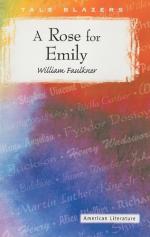|
This section contains 9,388 words (approx. 32 pages at 300 words per page) |

|
SOURCE: “The Narrator in ‘A Rose for Emily,’” in The Journal of Narrative Technique, Vol. 1, No. 3, September, 1971, pp. 159–78.
In the following essay, Sullivan argues that the narrator of “A Rose for Emily” is more important to the meaning of the story than most critics believe.
I
Faulkner's well-read “A Rose for Emily” has been variously interpreted as a mere horror story about necrophilia and madness, as a story about the Old South contending with the New Order of the Post-Civil War era, as a tragic tale of a woman's noble but doomed effort to resist the forces of time, change, and death, and as a tale of the catastrophe that can result when someone allows illusion to become confused with reality.
Published criticism of this story shares two assumptions: that Miss Emily is its only important character and that she is somehow objectively presented; that is, that she...
|
This section contains 9,388 words (approx. 32 pages at 300 words per page) |

|


